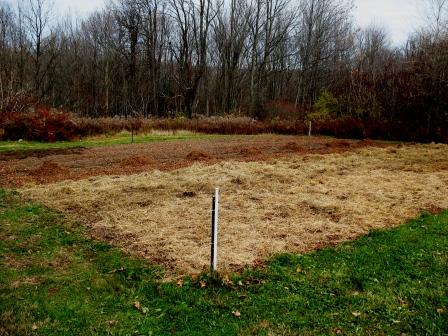




To understand permaculture is simply to look at how nature has been growing things for thousands of years. The 'secret' is simply to keep the soil covered with plants or mulch.




 1
1








Michael Vormwald wrote:perhaps just piling on organic matter in the garden is better than making hot compost?





 . I do not know whether "better" is a useful term here, as it is more an issue of "different" without value judgment. There is also the question of what we are growing and which sort of soil will work best for the plants in a given situation.
. I do not know whether "better" is a useful term here, as it is more an issue of "different" without value judgment. There is also the question of what we are growing and which sort of soil will work best for the plants in a given situation.







 1
1




Works at a residential alternative high school in the Himalayas SECMOL.org . "Back home" is Cape Cod, E Coast USA.




Peter Ellis wrote:Mother Nature works on a different time line than we humans
. I do not know whether "better" is a useful term here, as it is more an issue of "different" without value judgment. There is also the question of what we are growing and which sort of soil will work best for the plants in a given situation.
I expect that much of it is a matter of time and timing. We are not nearly so patient as the ecosystem surrounding us.
To understand permaculture is simply to look at how nature has been growing things for thousands of years. The 'secret' is simply to keep the soil covered with plants or mulch.








Jaan Designs-http://www.jaandesigns.ca
Raindrop harvesting-http://raindropharvesting.ca




To understand permaculture is simply to look at how nature has been growing things for thousands of years. The 'secret' is simply to keep the soil covered with plants or mulch.

|
I don't like that guy. The tiny ad agrees with me.
Freaky Cheap Heat - 2 hour movie - HD streaming
https://permies.com/wiki/238453/Freaky-Cheap-Heat-hour-movie
|

